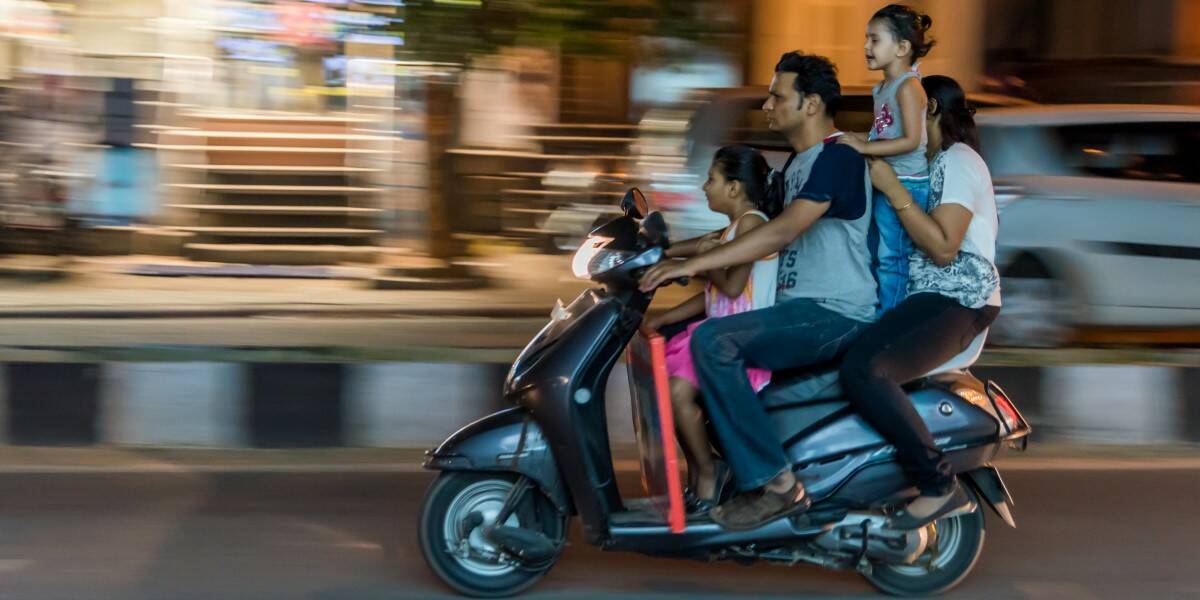Ancient Art Of Banning Rideshare Companies Revived In India, This Time On Motorbikes

On Monday, the Transport Department in India's capital city Delhi banned private bike taxi services effective immediately – delivering a swift and sudden blow to ridesharing platforms in the city of over 30 million souls.
The order was issued on grounds that the practice and services violated existing laws, since the vehicles are not registered for commercial use. Violation of the order is a punishable offense, with digital platforms receiving a fine of around US$1200 if caught.
Individuals operating commercially are also subjected to fines. Subsequent offenses could result in more fines, vehicle impounds, drivers license suspensions and even imprisonment.
In August 2022 India was reported to have over 210 million registered two-wheeled vehicles – three times the number of registered vehicles with four or more wheels in the country. Over half of Indian households own a scooter or motorcycle, according to a government survey.
Rideshare companies have therefore targeted two-wheelers to spread their services.
Delhi's transport minister, Kailash Gahlot wrote in a tweet that a policy will be rolled out soon to help two-, three-, and four-wheeled vehicles apply for proper licenses.
- Marketing company chases Twitter for $7,000 over 'swag gift box for Elon'
- Results are in for biggest 4-day work week trial ever: 92% sticking with it
- Accidental WhatsApp account takeovers? It's a thing
- Save $7 million on cloud by spending $600k on servers, says 37Signals' David Heinemeier Hansson
- NASA: Yup, thousand-pound meteorite exploded over Texas
Delhi's government was not the first regional authority to restrict ride-sharing. The states of Karnataka and Maharashtra have banned non-licensed taxi services all together – no matter how many wheels are on the vehicle.
Indian taxi aggregator Rapido challenged the ban in Maharashtra, but the Supreme Court declined to hear the case earlier this month.
Other aggregators affected by the ban include Uber and Ola. Critics of the ban have pointed out that the move both restricts the income potential of gig workers and reduces options for commuters. Two-wheeled vehicles are the ride of choice in many parts of Asia as they are cheaper to acquire and operate, can navigate small spaces, and are plentiful.
According to analyst firm McKinsey, the number of two-wheeled vehicles is expected to soar in India as electric vehicles continue to take over the market. The analyst firm predicted a 2021 to 2030 CAGR of 66 percent for two-wheeled EV sales in the country. ®
From Chip War To Cloud War: The Next Frontier In Global Tech Competition
The global chip war, characterized by intense competition among nations and corporations for supremacy in semiconductor ... Read more
The High Stakes Of Tech Regulation: Security Risks And Market Dynamics
The influence of tech giants in the global economy continues to grow, raising crucial questions about how to balance sec... Read more
The Tyranny Of Instagram Interiors: Why It's Time To Break Free From Algorithm-Driven Aesthetics
Instagram has become a dominant force in shaping interior design trends, offering a seemingly endless stream of inspirat... Read more
The Data Crunch In AI: Strategies For Sustainability
Exploring solutions to the imminent exhaustion of internet data for AI training.As the artificial intelligence (AI) indu... Read more
Google Abandons Four-Year Effort To Remove Cookies From Chrome Browser
After four years of dedicated effort, Google has decided to abandon its plan to remove third-party cookies from its Chro... Read more
LinkedIn Embraces AI And Gamification To Drive User Engagement And Revenue
In an effort to tackle slowing revenue growth and enhance user engagement, LinkedIn is turning to artificial intelligenc... Read more

